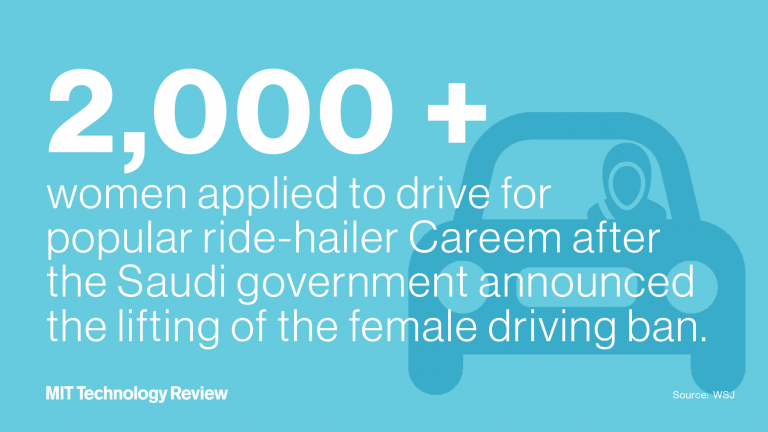The country’s ban on female drivers has been removed, and the first women are taking the wheel.
The big change: At the end of June, the Saudi Arabian government lifted the decades-old ban, after the move had been announced in September of last year. In the time in between, Uber’s Middle East competitor, Careem, received more than 2,000 applications from women who wanted jobs as drivers.
The news: Careem’s first female drivers (which the platform refers to as “captains”—or “captainahs”) have already begun work. That not only gives them opportunities to earn cash on the side—it also helps provide other women with more reliable transportation to and from their own work arrangements.
But … While many customers are receptive to being picked up by female captains, they still face an uphill battle. “I support women driving but if I ordered an Uber and saw it was a woman driver, I would cancel,” Aziz Ahmad, a college student in Jeddah, told the Wall Street Journal. “I don’t think it’s right for a woman to be alone with a foreign [unrelated] man in the car.”
What about Uber? Although Uber has been offering more than $250,000 since March to finance the costs of driving school for women, no women have yet begun driving for the company.
What’s next: Careem plans to hire 20,000 women as drivers throughout the Middle East over the next two years.

